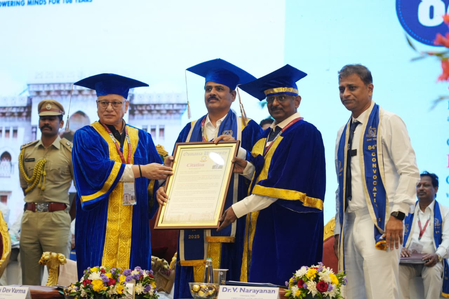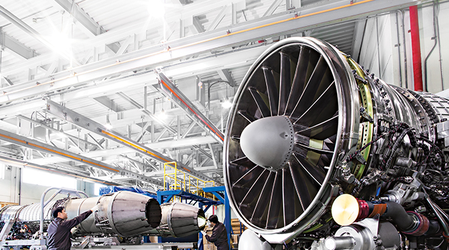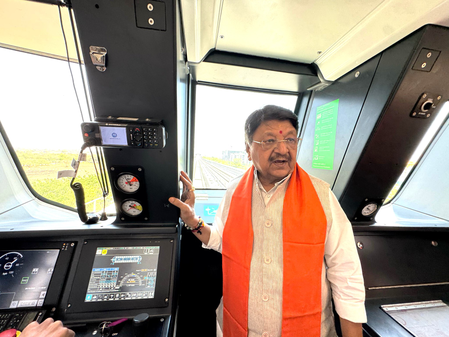
Hyderabad, Aug 19 (IANS) The Indian Space Research Organisation (ISRO) is working on a rocket as high as a 40-storey building to place a 75,000 kg satellite in low Earth orbit, ISRO Chairman V Narayanan said on Tuesday.
The space agency has set several targets including launch of the NAVIC (Navigation with India Constellation System) satellite and the N1 rocket, besides placing a 6,500 kg communication satellite of the US into orbit using Indian rockets.
The ISRO Chairman was delivering the convocation address of Osmania University here.
“We are conceiving a rocket to place 75,000 kg in low Earth orbit. The rocket would be the height of a 40-storey building,” he said, recalling that the first launcher built by Dr APJ Abdul Kalam decades ago was a 17-tonne lift-off mass, capable of placing 35 kg in low Earth orbit.
He also revealed that ISRO plans to launch this year a Technology Demonstration Satellite (TDS) and GSAT-7R, Indian military communication satellite, specifically designed for the Indian Navy to replace the existing GSAT-7 (Rukmini) satellite.
Stating that India currently has 55 satellites in orbit, the ISRO Chairman said the number would increase to three times in another three to four years.
He said as announced by Prime Minister Narendra Modi, the country will build its own space station by 2035. It will be a 52-tonne mass space station. The space agency is also working on the Venus Orbiter mission.
Referring to astronaut Shubhanshu Shukla’s successful journey to the International Space Station and return, he said the original project was scheduled for June 11. However, a day before that, a team led by him identified a leakage in the rocket and it was postponed to June 25.
He said the ISRO team was camping in Kennedy Space Centre and they were informed that there was a minor leakage in the rocket.
“We demanded correction. Because I have been working in that field for the last 40 years, I know the difficulties that can crop up if a rocket takes off with a leak. When the team inspected it found there was a crack and with that crack, if the rocket would have taken off, it would have been a catastrophic failure. Based on the insistence of Indians, the Indian education system, the training of ISRO, the rocket was corrected. Today we have accomplished a safe mission, not only for Shubhanshu Shukla, but along with him three more international astronauts,” he said
Explaining India’s space journey, Narayanan said today India is in a position to rub shoulders with advanced space-faring nations.
From a humble beginning of launching a tiny rocket donated by the US in 1963, the space programme has come a long way and last month ISRO had a great vision accomplished with the launch of NASA-ISRO Synthetic Aperture Radar satellite.
“An important payload costing 10,300 crore was built by the US and we built an equivalent payload. The entire satellite was built by Indians in India and it was lifted off successfully by a rocket built by India and placed successfully in orbit,” he said
He said in three months, ISRO will have another important mission with a 6,500 kg communication satellite built by the US going to be launched by an Indian launcher on a commercial basis.
He pointed out that India has launched 133 satellites of various types, including a 6,000 kg high-throughput GSAT-11 satellite. India has also launched 433 satellites of 43 countries using its own launch vehicles.
India has the best camera on the Moon with 32-centimetre resolution and is the only country till today to have succeeded in its Mars orbiter mission in the first attempt while none of the developed countries could do so.
“ISRO is the first organisation and India is the first country which successfully placed 104 satellites using a single rocket in the first attempt. And today, we have built the Aditya L1 satellite to study the Sun,” Narayanan said.
Not only studying the Sun, it has brought 20 terabit data. India is one among four countries having the capability to build the satellite for studying the Sun, he added.
Narayanan was presented with the honorary degree of Doctorate of Science, recognising his pivotal contributions to India’s space programme, by Telangana Governor Jishnu Dev Varma.
–IANS
ms/rad




